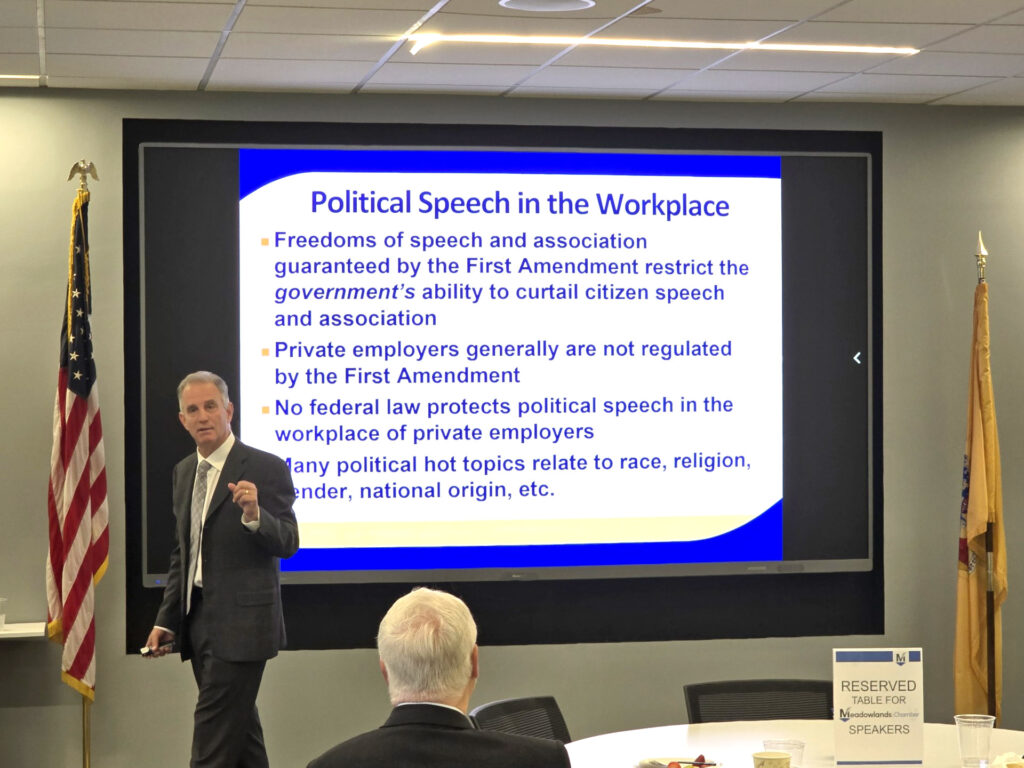In today’s political climate, it is very common for people to express their opinions on social media. These conversations no longer take place only at the water cooler. More often, individuals are expressing themselves on social media, either with an original post or with a “like” or other support for another’s political post. But if you supervise others, or own the company, the risk of doing so, even from your personal account, cannot be understated.
It can negatively affect productivity, employee morale, relationships among co-workers and even threaten damage to the company brand. Courts are regularly holding that there is no distinction between conduct occurring in the workplace and social media content produced and viewed outside of work.
Imagine the manager/owner who posts his/her opinions about a particular candidate. Employees of the company may be “friends” with the writer or otherwise gain access to the post. Could this content contribute to an unlawful hostile work environment? According to the Equal Employment Opportunity Commission the answer is “yes.”
Why? Because many times social media content includes references to issues that form the basis of a legal claim under state and/or federal anti-discrimination laws, e.g., immigration, LGBTQ+ rights, affirmative action and reproductive rights. Employees who report to the author, and who disagree with the post, may face disciplinary action (legitimate or not) subsequent to the date of the post and will now have ammunition to claim that the manager’s opinion/bias on these social issues contributed to the decision to impose discipline. And, if the employee formally makes known their disagreement with the post, and then faces discipline at some point after, the company may be defending a claim for retaliation as well.
Each state has their own laws regulating employee social media use. Employers must review these laws and craft clear social media policies to ensure compliance. More important, companies must train their employees, including supervisors, on the proper use of social media. Finally, as I stress in my sessions, employers must enforce all policies, including those on social media, in a uniform and non-discriminatory manner.




